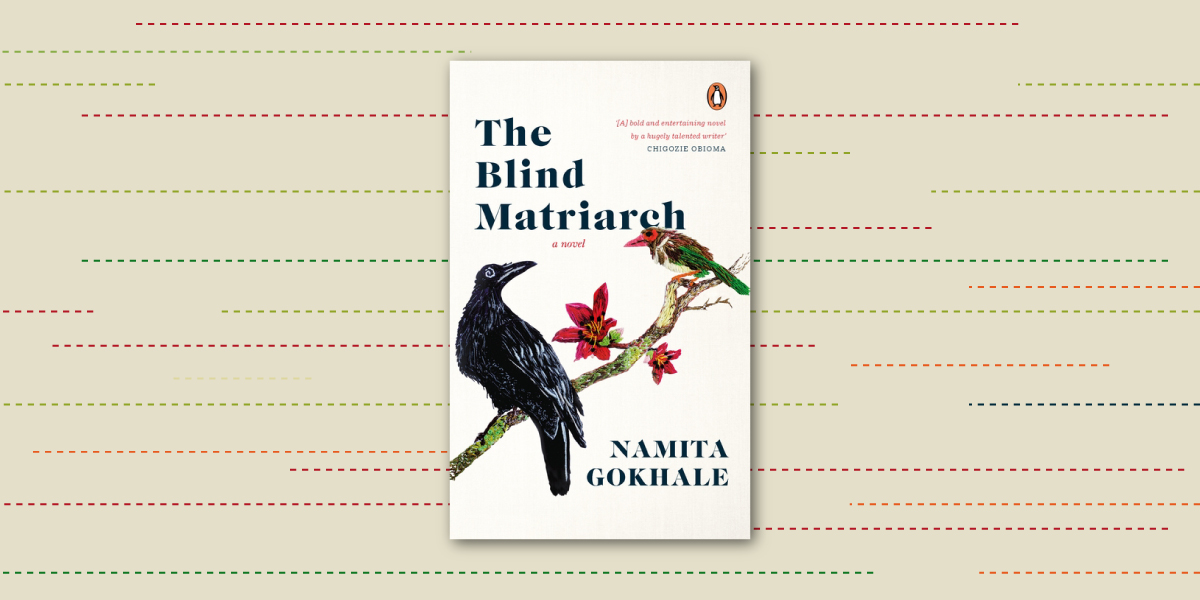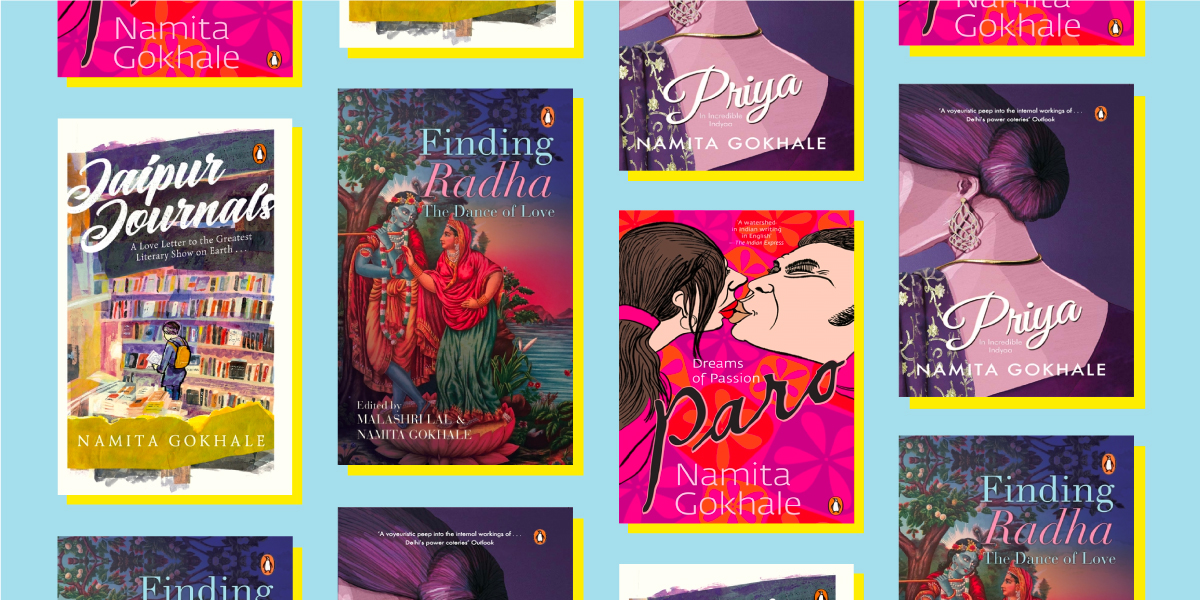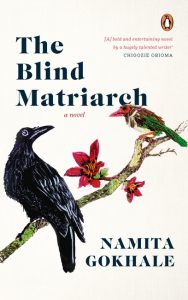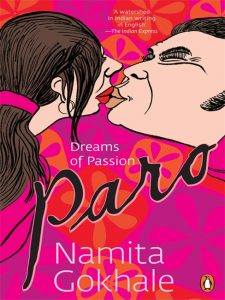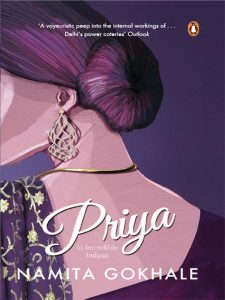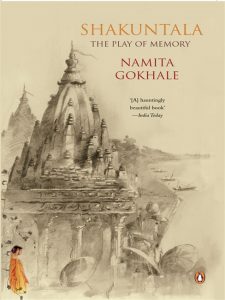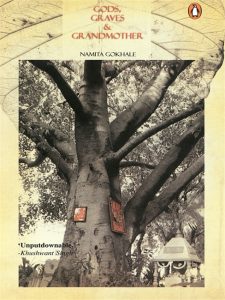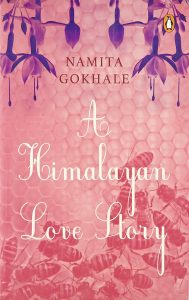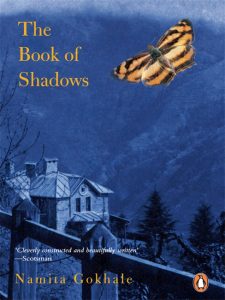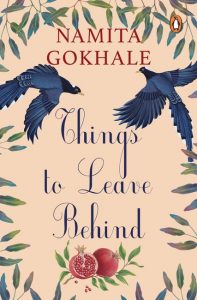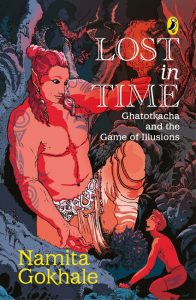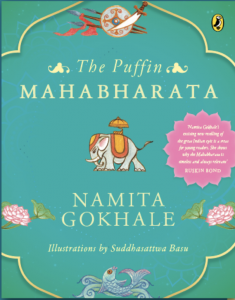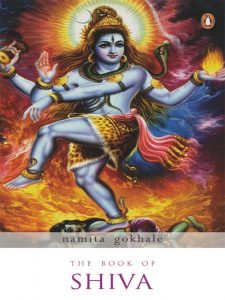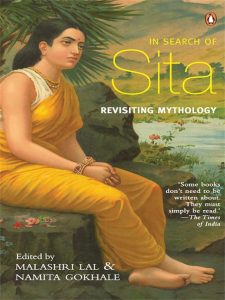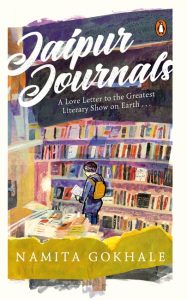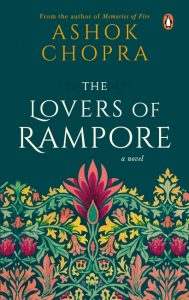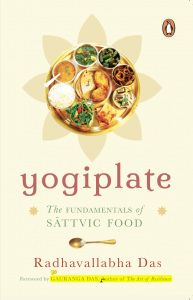Namita Gokhale excels at her craft as she narrates the story of a family under siege during the pandemic. ‘The Blind Matriarch’, Matangi Ma, lives on the topmost floor of an old house with many stories. From her eyrie, she hovers unseeingly over the lives of her children and grandchildren. Life unfolds slowly until the world comes to a standstill, and everyone is forced to look inward.
This assured novel records the complex inner life of an extended joint family. It can also be seen as an allegory of our existence as a nation, with its hierarchies, its vulnerabilities, and its essential resilience.
~
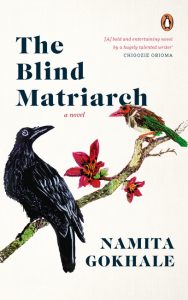
Satish walked up with him to the floor above. ‘You have a visitor, Matangi-Ma,’ he said cheerfully. ‘Your grandson is bored of the lockdown. He wants to spend time with you.’
‘Switch off the television,’ Matangi instructed Lali. ‘I want to tell Rahul a story today.’
But Lali was glued to the television. Rishi Kapoor had died. The news channel had begun on a clip from his first film, Bobby, followed by a tearful shraddhanjali and celebrity condolences. Matangi had been in her thirties when she saw the film, in a cinema hall with her friends. She used to wear spectacles those days. She had fallen in love with him, and with his girlfriend Bobby too. She had hated his rich parents, and rather despised Dimple Kapadia’s fisherman father as well.
Rishi Kapoor, son of Raj Kapoor, grandson of Prithviraj Kapoor. He was, had been, Bollywood royalty, and she paid obeisance in her heart. First Irrfan, now Rishi. Why were they dying so young, these boys? Why had Yamdoot, the lord of death, decided to abduct the chocolate boy of Bollywood?
She felt an enormous guilt descend upon her, the weight of being alive. Here she was, at eighty, blind as a bat, of no particular use to anyone. A burden upon her loving children. And it was the young who were dying.
‘Did Rishi Kapoor die of the coronavirus, Matangi-Ma?’ Rahul asked her.
‘No, beta, he did not die of the virus. He died of . . .’ She bit her tongue. Why frighten a little boy with the spectre of cancer? ‘Rishi Kapoor didn’t die of Covid. He died because God wanted him in heaven, to make a Bollywood film there.’
Of course, the child wouldn’t believe her, but her answer would divert him, she thought.
But the idea appealed to Rahul. He nodded enthusiastically. ‘That’s why Irrfan Khan was called up. I wonder who God will cast next, for the female lead?’
Rahul had brought the precious bag of squashed semal pods with him. He shared the cotton wisps with Matangi excitedly flinging them around her bed and watching them flurry down. She told him he was the cleverest boy in the world. She would make herself a tiny pillow from the semal cotton, she said, a special pillow that would give her beautiful dreams.
Matangi uttered a silent prayer, a plea without words that rose from the depth of her heart. It was addressed to anybody who might be listening—to the gods, the goddesses, to Yamdoot, to Rishi Kapoor if he was hovering around.
‘Let me die now,’ she prayed. ‘Let me gift my remaining years to this beloved boy. May he live to be a hundred years, or more. But take me away. I have lived enough.’
They spent a delightful day together—Lali and Pappoo and Rahul and Matangi and the bird. They played absurd games, games which made no sense, but which made them laugh. Lali made mango milkshake for all of them, for Matangi too.
Does the bird have a name, Rahul had asked, and they discovered to their surprise that nobody had named it yet.
‘Mithoo,’ Lali had suggested. Pappoo had amended that to ‘Mithoo Mian’. Matangi suggested ‘Mirchi’. Rahul had to think hard before he came up with ‘Captain Covid’.
They agreed on ‘Mirchi’ as Matangi was the oldest among them, and had discovered the bird, saved it from being eaten by the black cat that had been waiting in the shadows.
Besides, as Matangi explained, ‘Mirchi’ would work equally well for a boy bird or a girl bird, and the barbet’s gender was still of course a mystery.
Rahul didn’t think about his mother or about all that had happened earlier in the day. He read out the poem he had written, the one about the lockdown, to his grandmother, and she was suitably impressed. He changed into his night suit later and slept on a mattress on the floor, which was fun. Lali and Pappoo and the bird slept in the veranda, as usual.
The next morning, Ritika went upstairs to Matangi’s floor to talk to Rahul, to apologize to him for her behaviour. She was still shaken up by all that had passed the previous night. She had slept alone, as Satish had taken his pillow from their bedroom and camped on the living-room couch.
Matangi was dozing in her bed, her face to the wall. Rahul was sitting by the small table by the window, reading a book. There was large brass cage on the table, with an odd-looking bird in it.
Rahul smiled when he saw her. ‘Hullo, Mummy!’ he said. ‘Meet Mirchi, my new friend. Matangi-Ma has magical powers and saved Mirchi’s life.’
Ritika was cut off from the gossip circuit in the building. She had not heard of the mysterious discovery of the bird and dismissed Rahul’s words as childish prattle. She was in any case too absorbed in rehearsing the formal apology she intended to make to her son.
But there was no need. Rahul put his book away, marking the page he was on, and rushed forward to hug her. ‘Don’t bother about yesterday, Mummy,’ he said. ‘Grown-ups can have problems too, just like children. I’m old enough to understand that.’
She broke down. He hugged her, consoled her, stroked her hair with his little hands.







